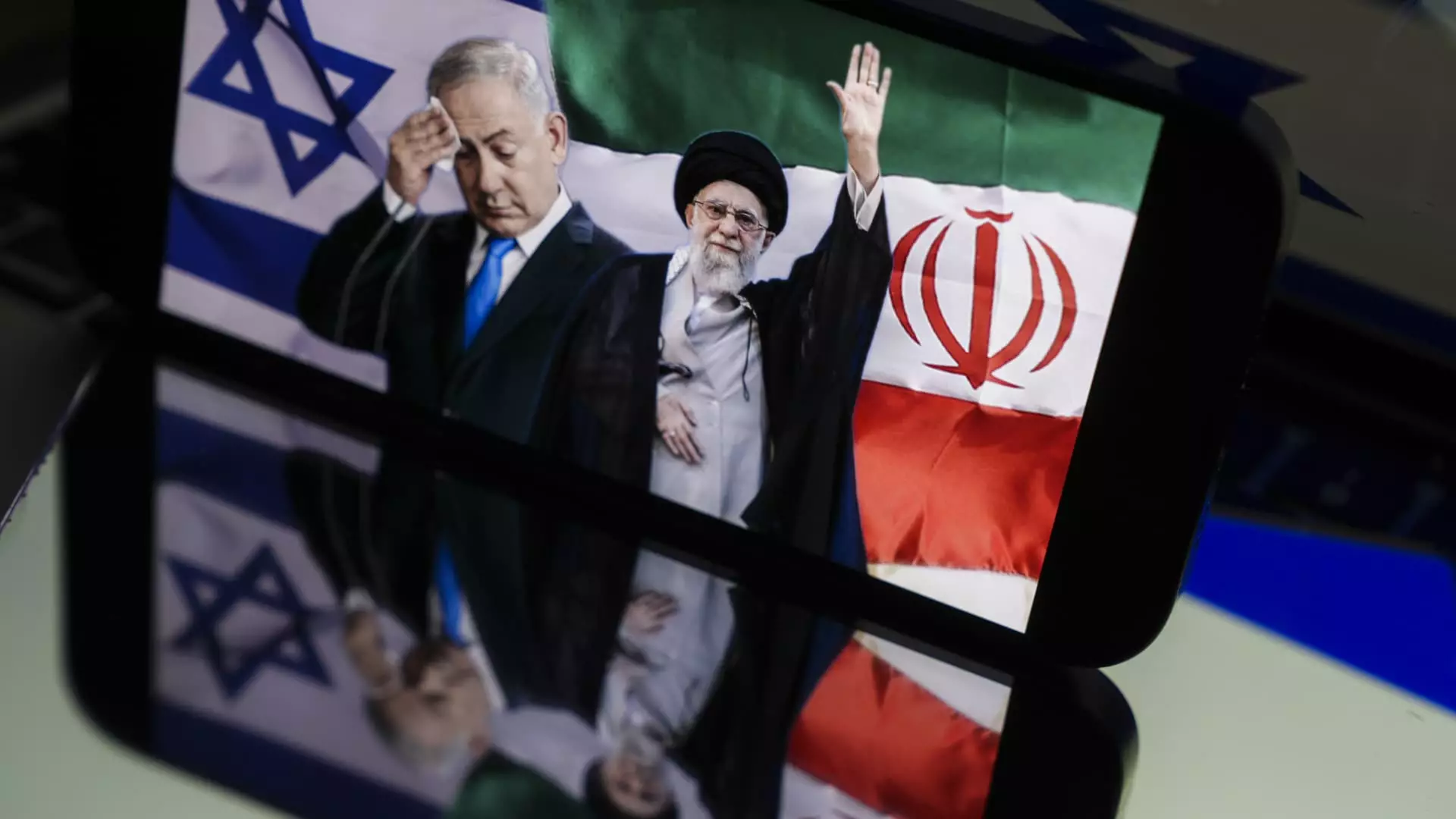In the current global landscape, the uncontrollable sway of geopolitical conflicts over energy markets has become glaringly evident. Iran’s recent belligerence and the subsequent reactions from global powers reveal a harsh reality: our reliance on political stability for economic security is fundamentally flawed. When Iran’s oil minister laments that war disrupts supply and complicates energy production, he is essentially highlighting a systemic vulnerability that no amount of technical forecasting can fully address. This crisis underscores a sobering truth—our interconnected world is only as stable as the geopolitical tensions that threaten to unravel it.
The recent escalation between Iran and Israel exemplifies what many foresee as an impending catastrophe—not just for regional security but for global energy stability. Iran’s strategic perspective as a dominant OPEC player—a role it continues to wield actively—means that any disruption in its output reverberates far beyond regional borders. The complex dance of conflict, sanctions, and diplomatic negotiations keeps the oil prices on a razor’s edge, threatening global economies that are already fragile amidst broader economic upheavals. The pattern is clear: geopolitical turbulence is an unpredictable “Black Swan” that can upend markets overnight, exposing the false sense of control many market analysts cling to.
The Dangerous Illusion of Economic Autonomy
While some governments and institutions portray the stability of oil markets as a function of supply and demand, this narrative is increasingly divorced from reality. Iran’s trade cloaked in shadow fleets and shell companies is emblematic of a larger, clandestine effort to sustain an economy choked by sanctions. Yet, this resilience is precarious—dependent on unpredictable factors like international diplomacy and covert negotiations. The U.S. sanctions, designed ostensibly to curb Iran’s nuclear ambitions, have inadvertently fueled this clandestine effort, perpetuating a cycle of tension that threatens to spiral into open conflict.
The danger lies in the assumption that markets can be insulated from geopolitical shocks. Evidence suggests otherwise. The recent pause in hostilities between Iran and Israel, while momentarily easing prices, is a fragile truce at best. The fundamental issue remains unresolved: Iran’s nuclear ambitions and the shadow war they have ignited with the United States and Israel. Without a comprehensive diplomatic solution—something that has eluded policymakers for decades—the threat of renewed conflict continues to loom. Such a scenario would likely unleash chaos in oil markets, destabilizing economies dependent on stable energy supplies.
Why Diplomacy is the Only Rational Path Forward
The ongoing tit-for-tat exchange of sanctions, military strikes, and diplomatic negotiations reveals a fundamental failure of our collective approach to conflict resolution. The perception that economic sanctions alone can force Iran to capitulate is a dangerous misconception. History shows that sanctions often entrench existing regimes and incentivize covert operations, making conflict more, not less, likely. It is paradoxical that the same policymakers who advocate for toughness often ignore the necessity of diplomacy as a tool for long-term stability.
A pragmatic, center-ground approach would prioritize open dialogue and strategic compromises over destructive brinkmanship. Engaging Iran in negotiations that address its security concerns, nuclear ambitions, and economic realities could build a foundation for stability—one that reduces the risk of supply disruptions. This would not only stabilize the markets but also foster a more balanced geopolitical environment. Relying solely on sanctions and military pressure is a high-stakes gamble with consequences that ripple into every corner of the world economy.
Ultimately, the reality is clear: geopolitical conflicts are no longer contained regional issues—they are global threats that can destabilize the entire energy infrastructure. We must recognize that peace and stability are not achieved through aggression and sanctions alone but through nuanced diplomacy that seeks long-term solutions. Only then can we begin to mitigate the catastrophic impacts that war and unresolved tensions have on global markets and our collective future.

Leave a Reply